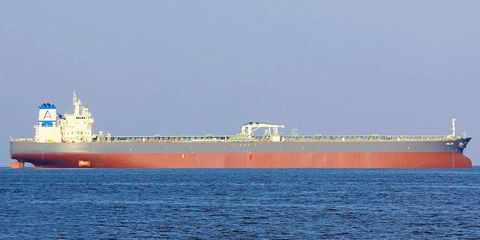Frontline pointed to disruption from Iranian sanctions and painted an optimistic view on Opec production as it predicted the worst news for the tanker market was in the rear view mirror.
As it reported a larger than expected third quarter profit the John Fredriksen-backed tanker owner presented a market that is beginning to re-balance.
Robert Hvide Macleod, chief executive of Frontline Management, said after 18 months of extremely challenging conditions it was optimistic that the market has now exited the cycle trough.
“Oil inventory draws, fleet growth and production cuts have been against us, but these important factors are now turning in our favour,” he said in the company’s third quarter report.
“The most important factor, oil demand, remains strong.”
Frontline reported attributable net income of $2.2m for the third quarter.
According to DNB Markets, the company's adjusted loss of $9.4m was less than half the $20.7m loss consensus.
“Sanctions on crude oil imports from Iran, notwithstanding any short-term waivers, have the potential to create significant dislocation in the crude oil markets, leading to periods of strong volatility as the market adapts to new trading patterns,” Frontline said.
“We have already seen imports of Iranian crude oil into India and China decrease and replaced with crude from other markets.”
Frontline said persistent negative market drivers have subsided over the course of 2018, while demand for crude oil has remained strong throughout the year and inventory draws had reduced stocks below five-year levels.
“Global supply of crude oil is up around 3.25mbd in 2018 compared to 2017, and although there is current talk of OPEC cutting back on production, we see volumes as healthy heading in to 2019,” it added.
“US volumes continue to rise, and oil exports from the U.S. are generally long-haul trades, which have a positive impact on ton-mile demand.”
In terms of supply, the shipowner counted 36 new VLCCs delivered this year, just one more than had been scrapped.
“Consistent high scrap prices, combined with a very weak freight market, drove recycling to a near record pace,” Frontline said.







